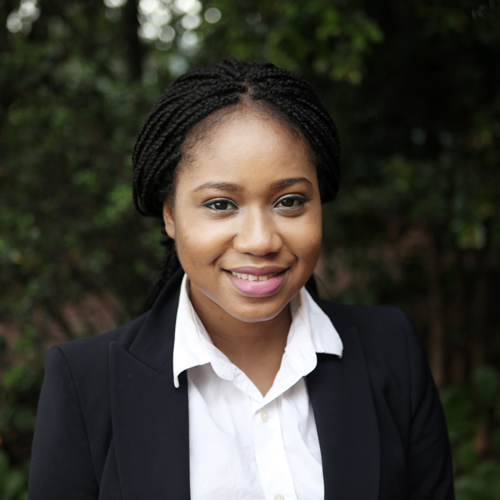Growing up in Nigeria, Ify Aniebo and her childhood best friend both loved comic books. When they were 7 years old, both girls got sick with malaria and were admitted to the hospital. Both received injections of chloroquine, the first-line antimalarial drug at the time. Only Ify survived, and she couldn’t understand why.
Using her favorite comic, the X-Men, as an analogy, her father’s friend explained that it was likely her friend was infected with a new strain of the malaria parasite that had mutated to evade treatment. By the early 2000s, drug-resistant strains had become so pervasive that they rendered chloroquine ineffective.
“For me, understanding how parasites could become like little X-Men was amazing. This wasn’t something that just happens in a comic. It really happens,” said Ify, who became a molecular geneticist because she was obsessed with understanding DNA, how it affects the malaria parasite’s mutating superpower, and how scientists can stop it.
She is now integrating genomics data into Nigeria’s malaria surveillance system, which currently captures just 16% of the country’s malaria cases and is run during the National Malaria Indicator Survey (MIS) which is run only every four years. Her goal is to make genomics data an essential part of Nigeria’s malaria elimination strategy, turn surveillance into an annual exercise, and expand its utility to other diseases.
She collected 10,000 blood samples from children in all 36 states in Nigeria. These samples will undergo genetic sequencing, to make it possible to identify, track, and control the malaria parasites that are becoming drug resistant. Finally, the data will be shared in an easy-to-understand dashboard to enable evidence-based decision making for public health officials.
“I’m trying to change the way we think about using genomic data to make decisions, not just in malaria but to also have long-lasting impact on other infectious diseases as well,” said Ify.
Ify moved to the U.K. when she was 11 years old. After 25 years, she returned to Nigeria despite its challenging research environment. Power outages interrupt sequencing runs, procuring lab supplies is costly and slow, gridlocked traffic steals hours of productivity, and runaway inflation squeezes her budget. But she is where she wants to be.
“I’m British and also Nigerian. It was very difficult to ignore the problems there when I clearly had ideas about what the solutions could be,” she said. “It simply wasn’t something that I could ignore.”

